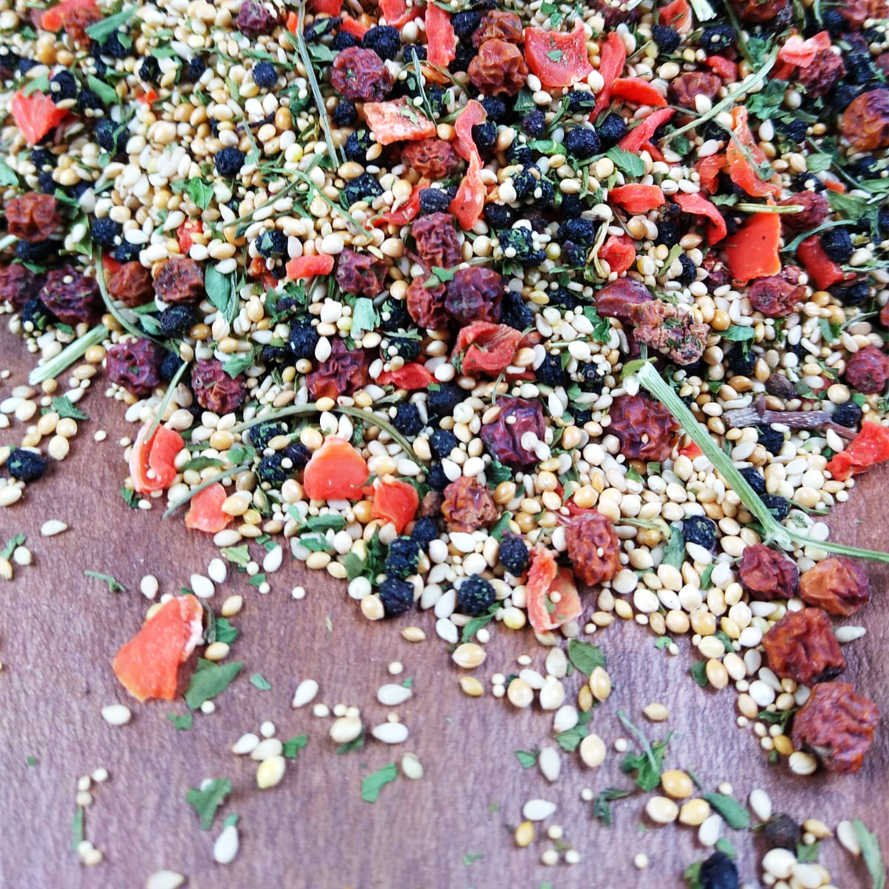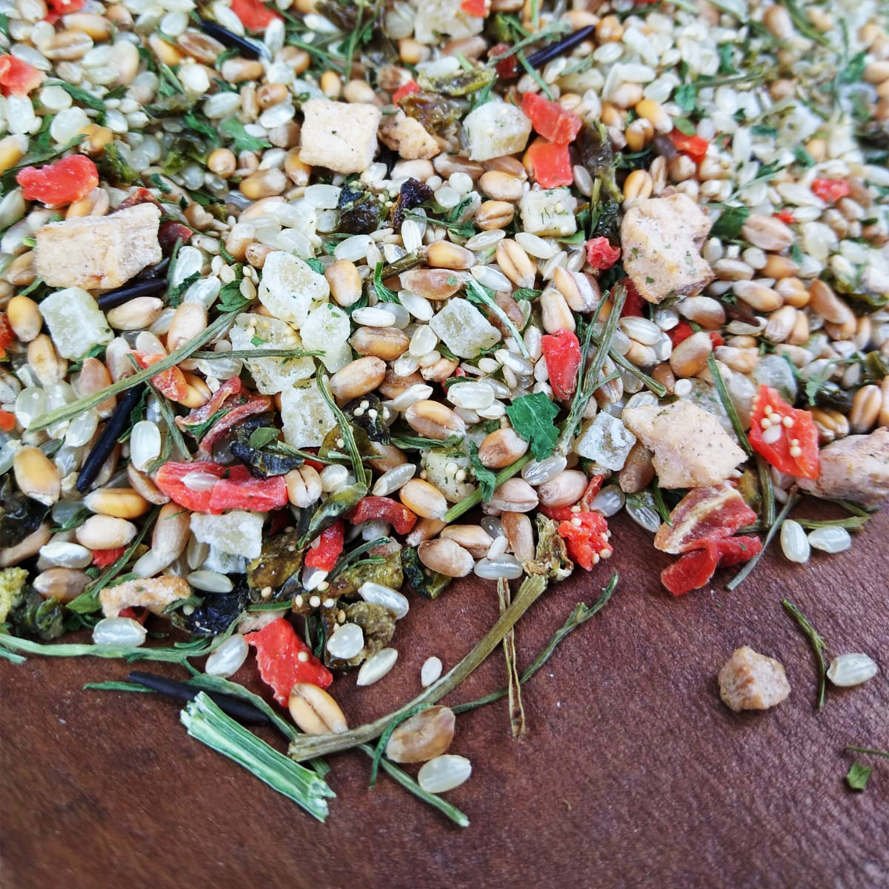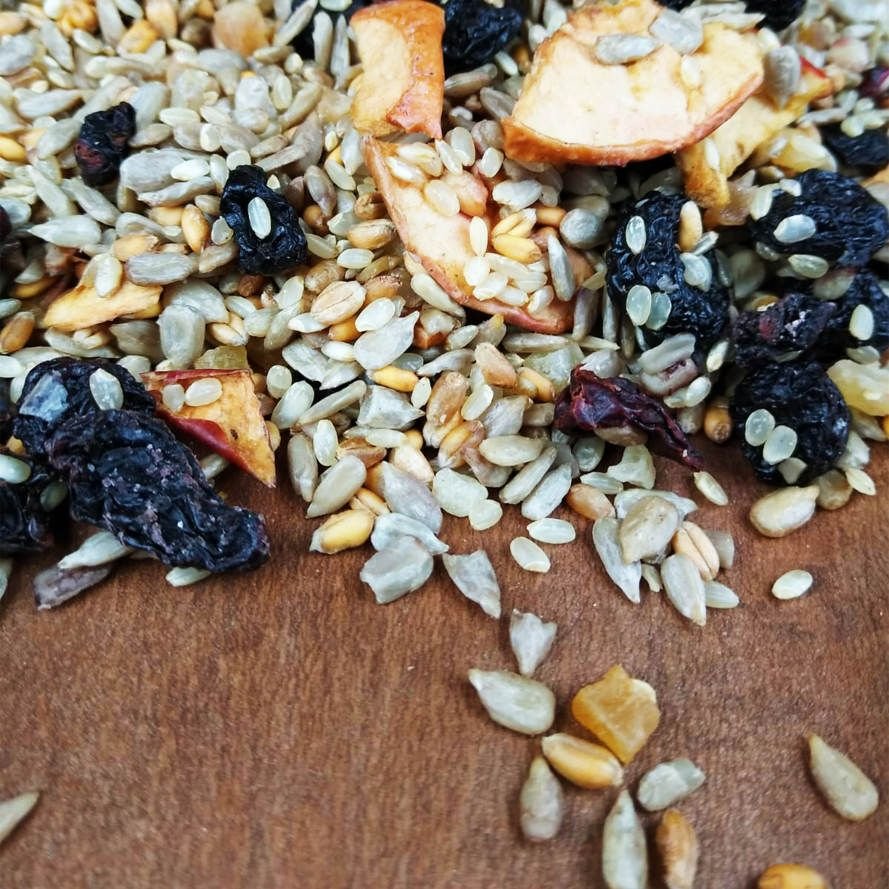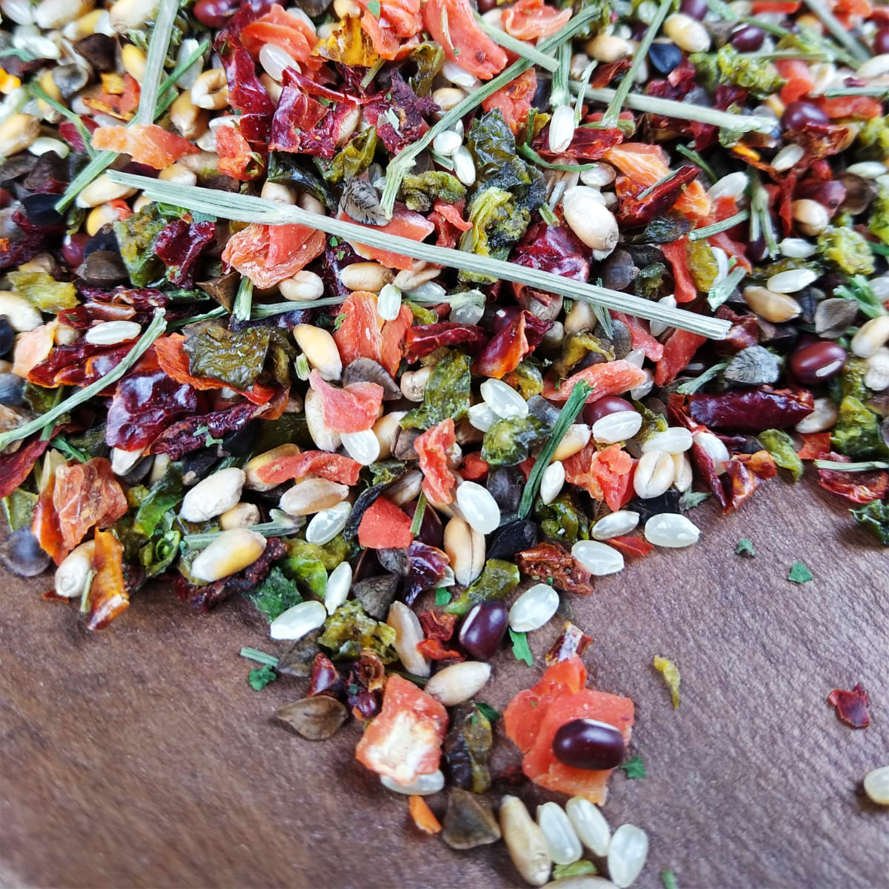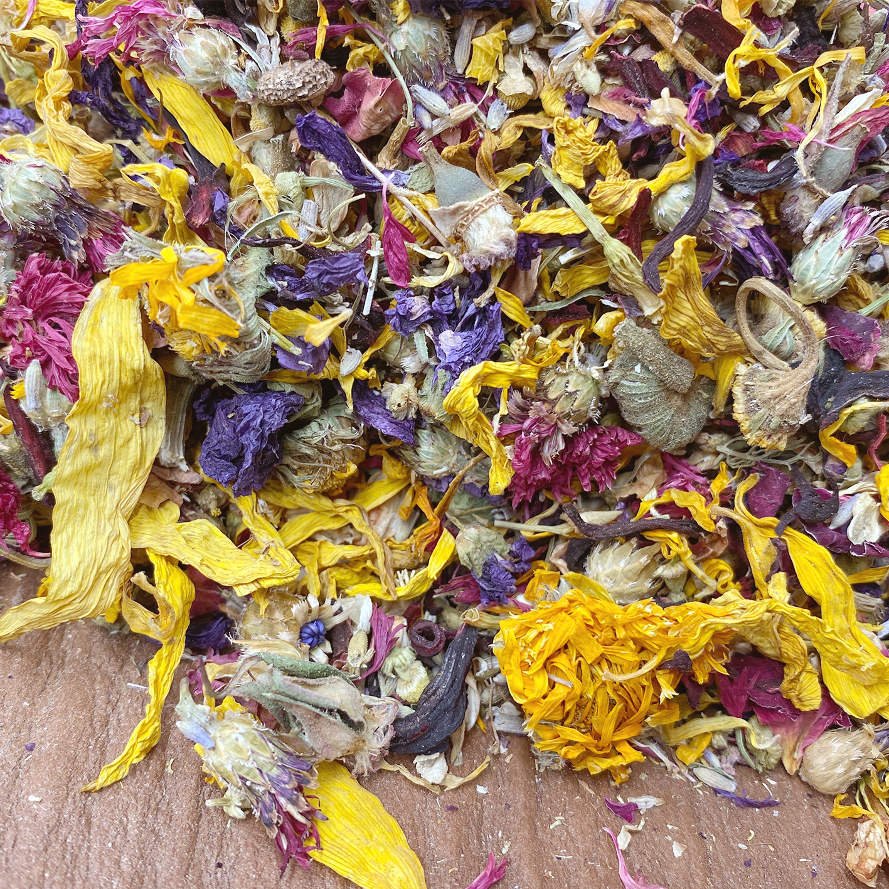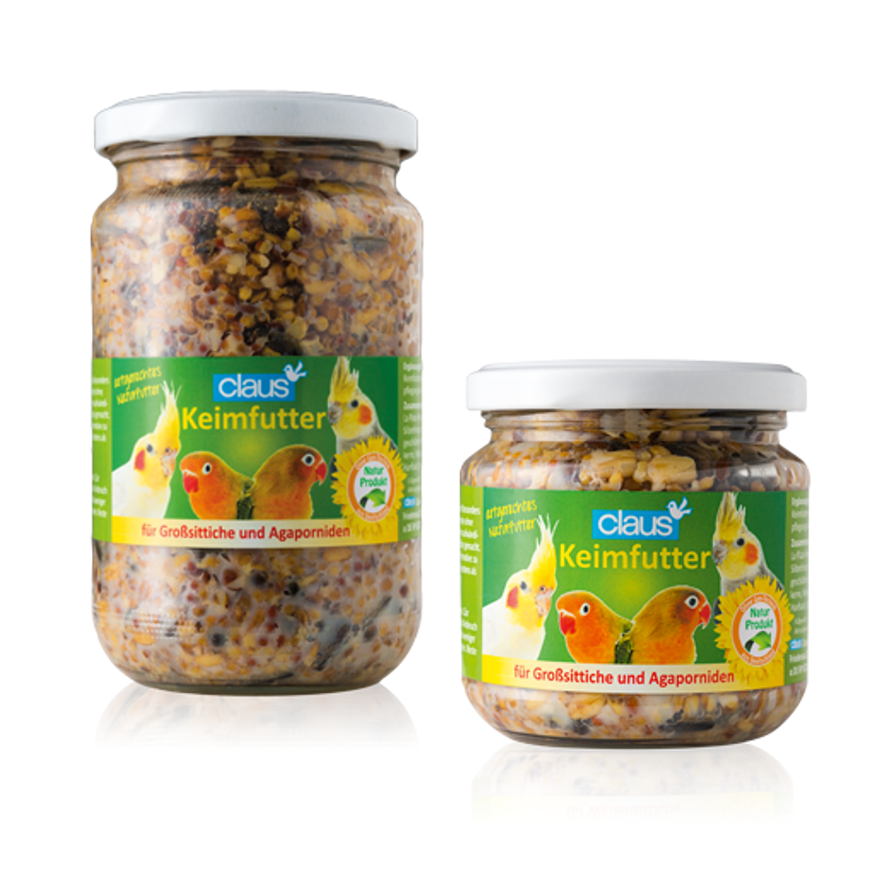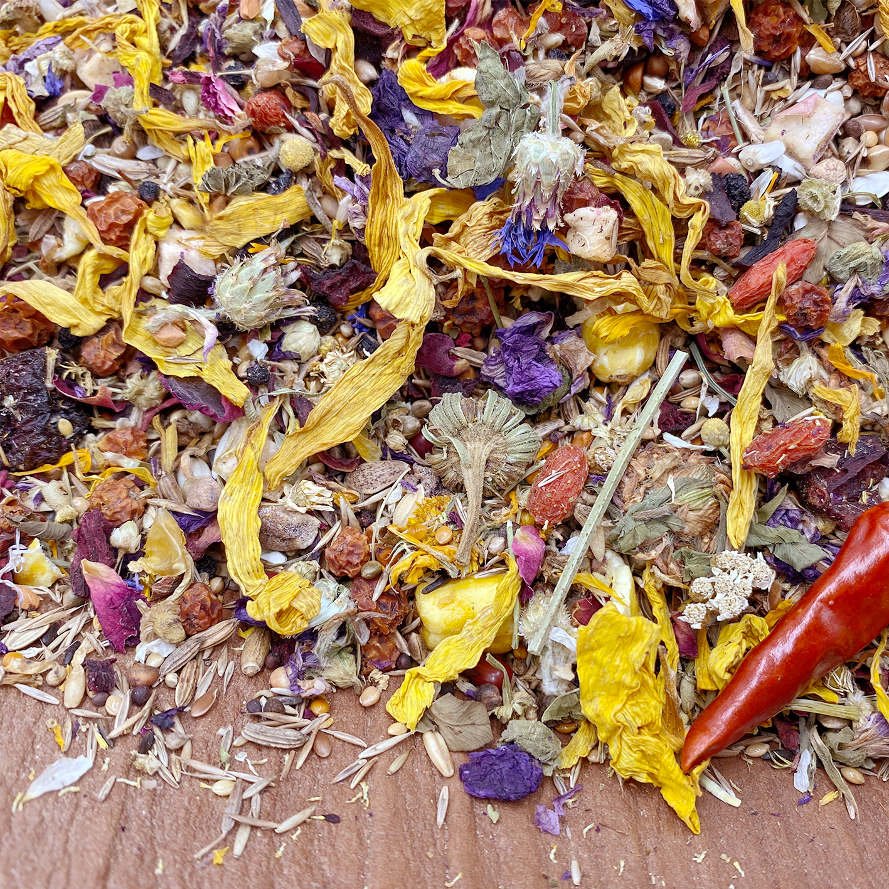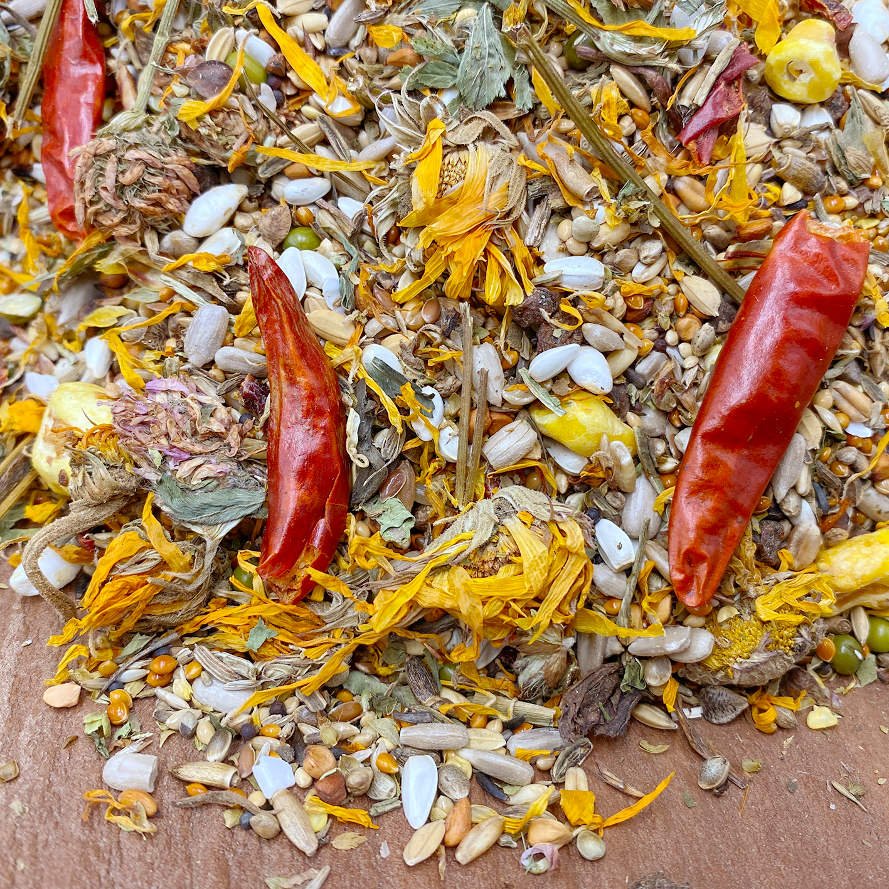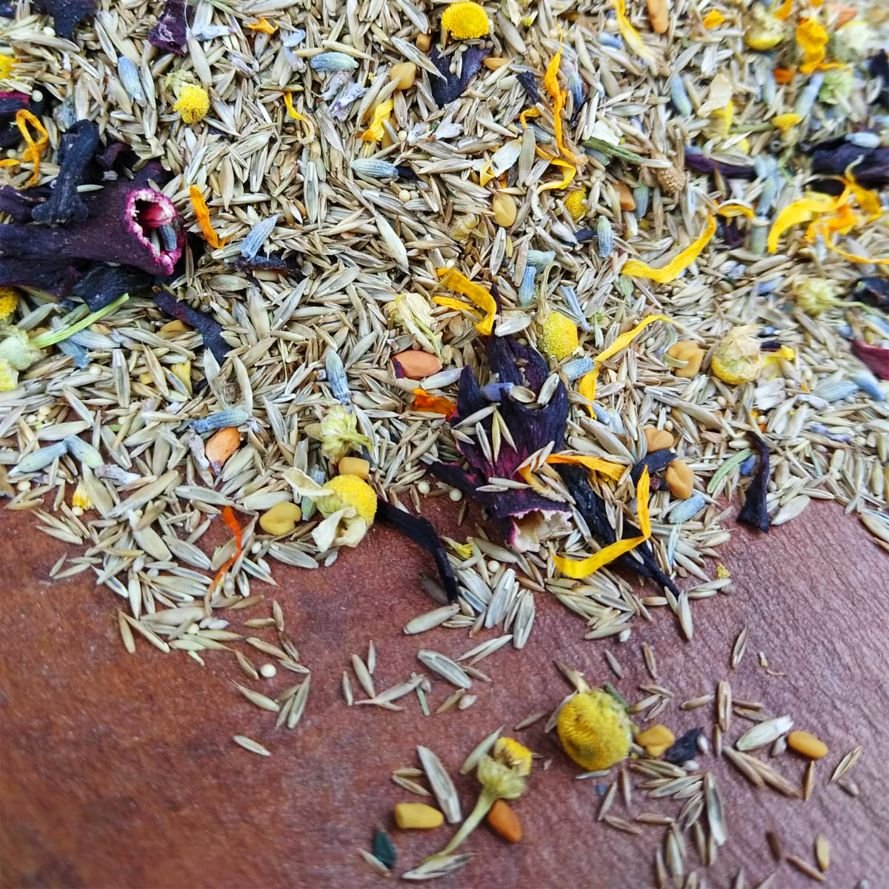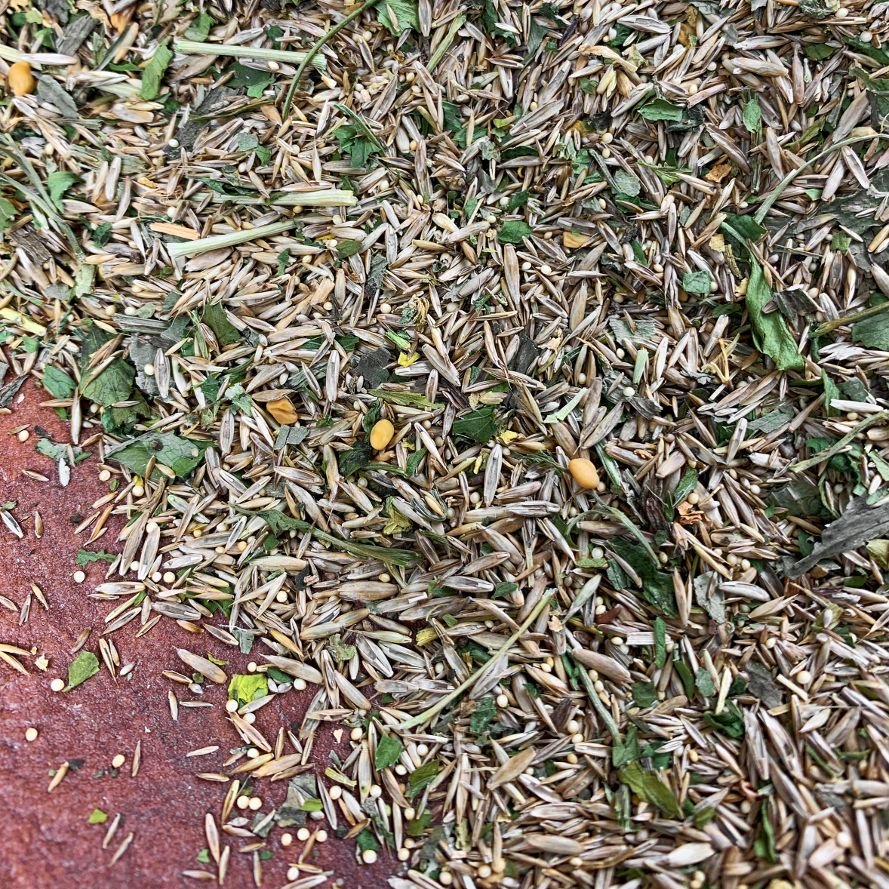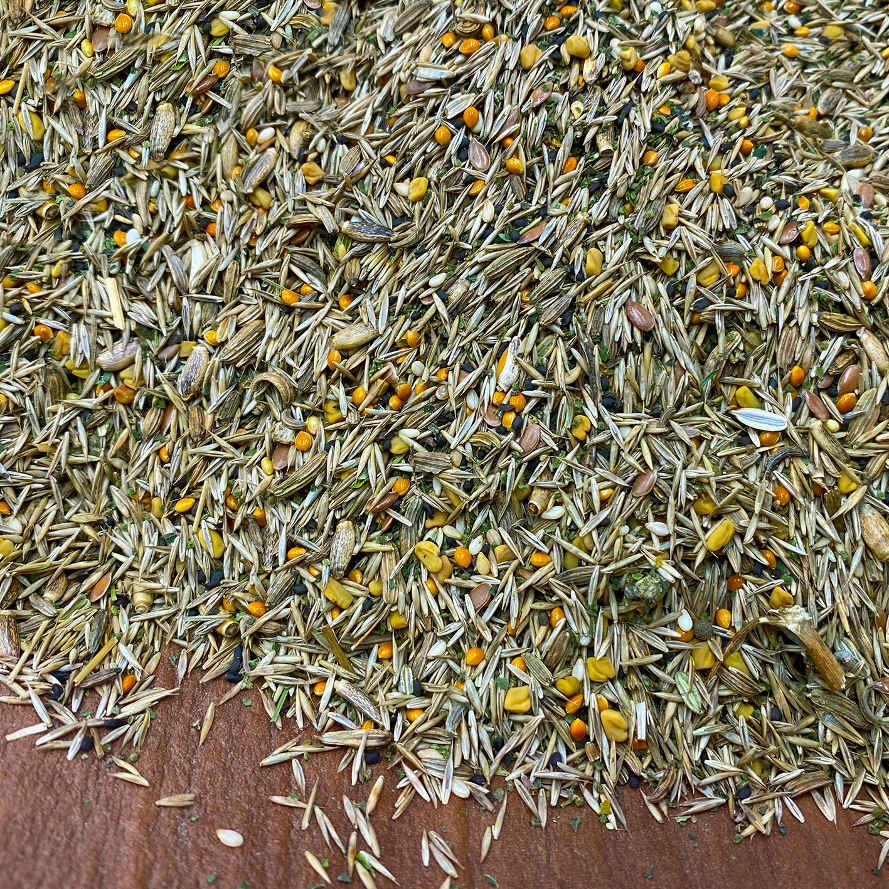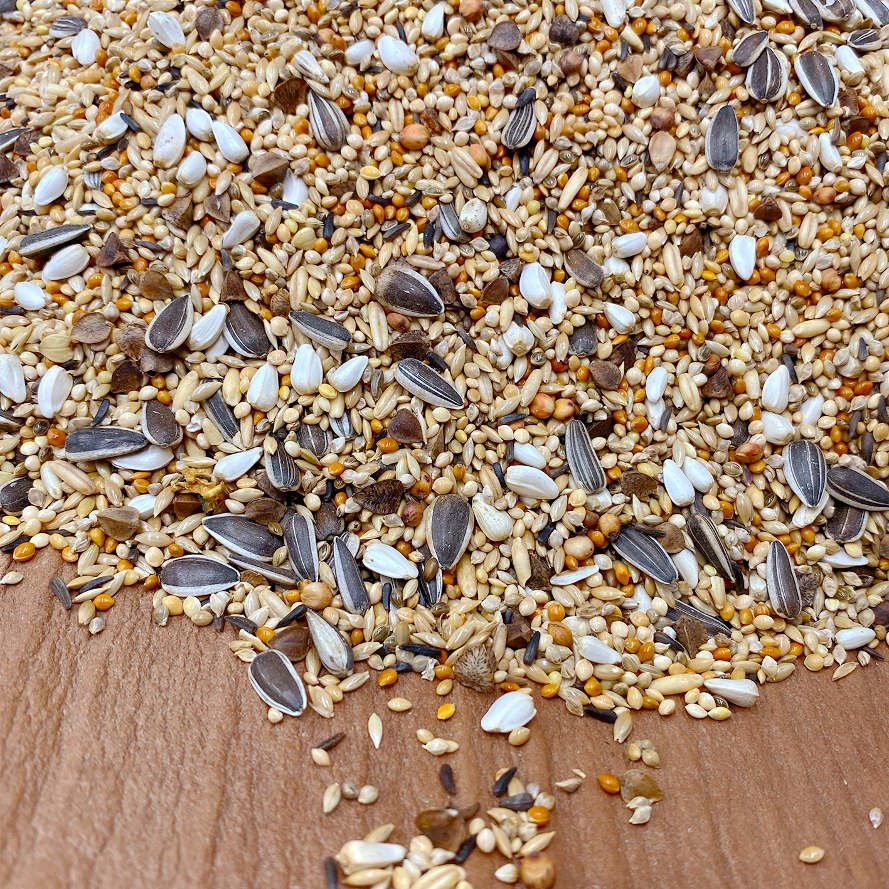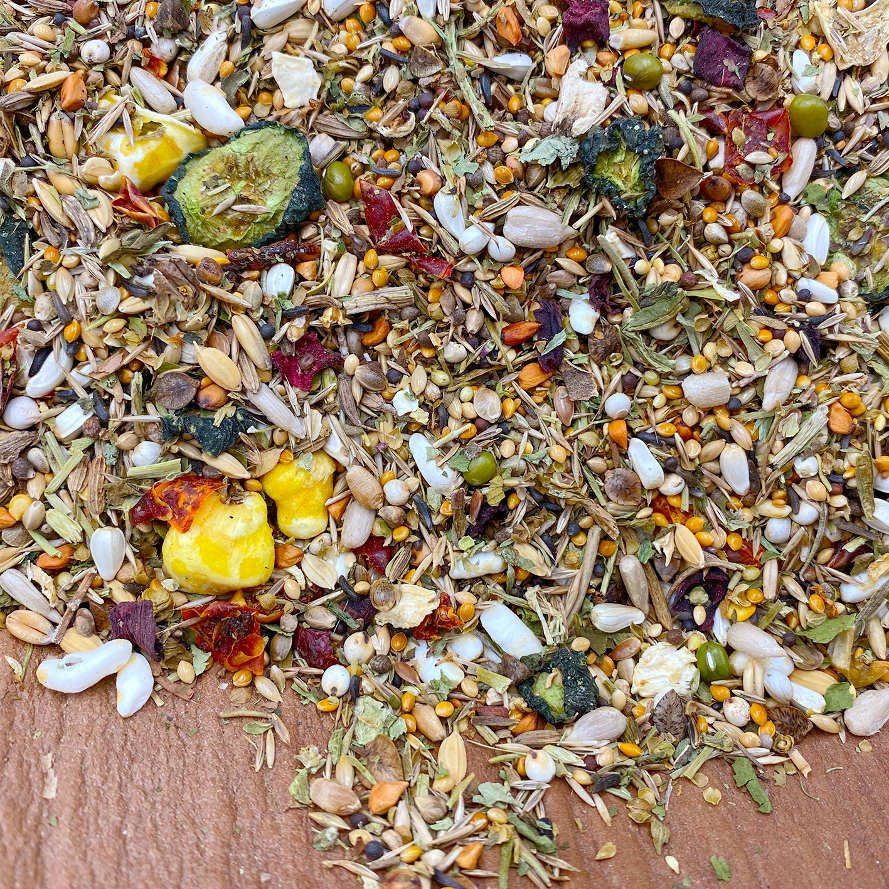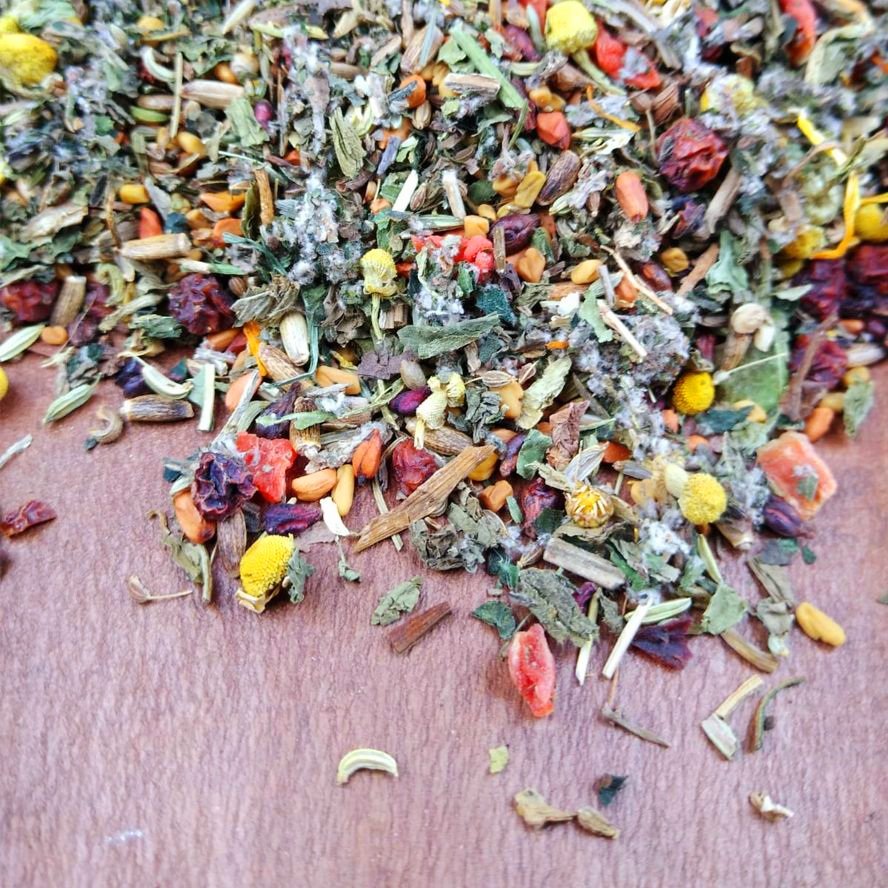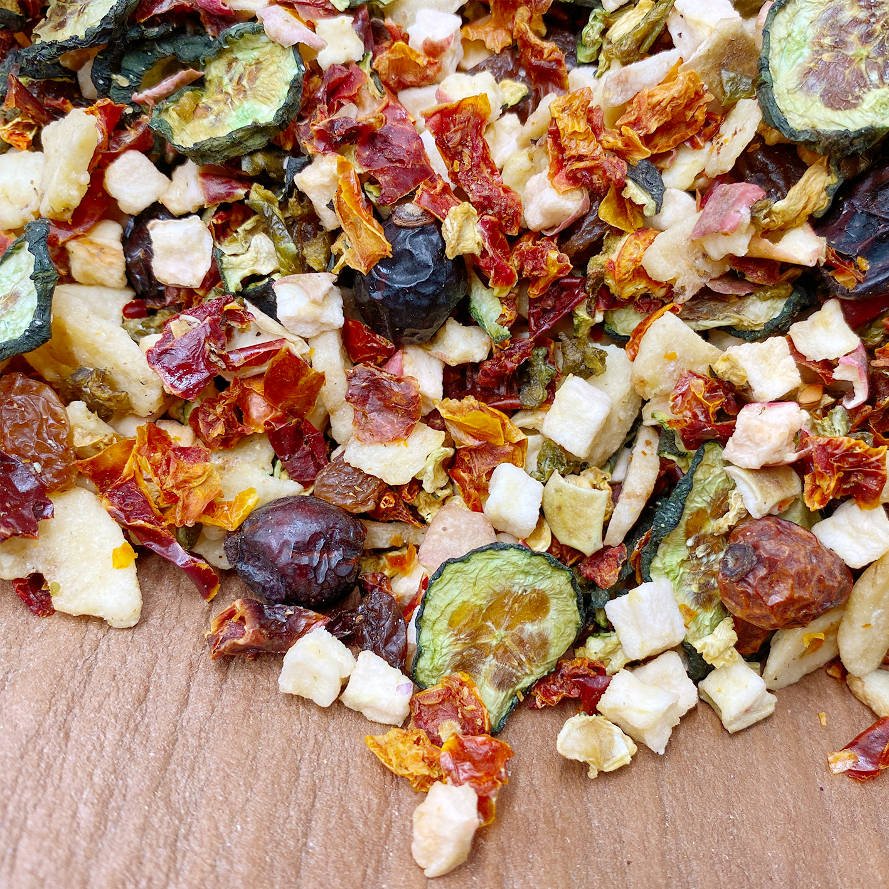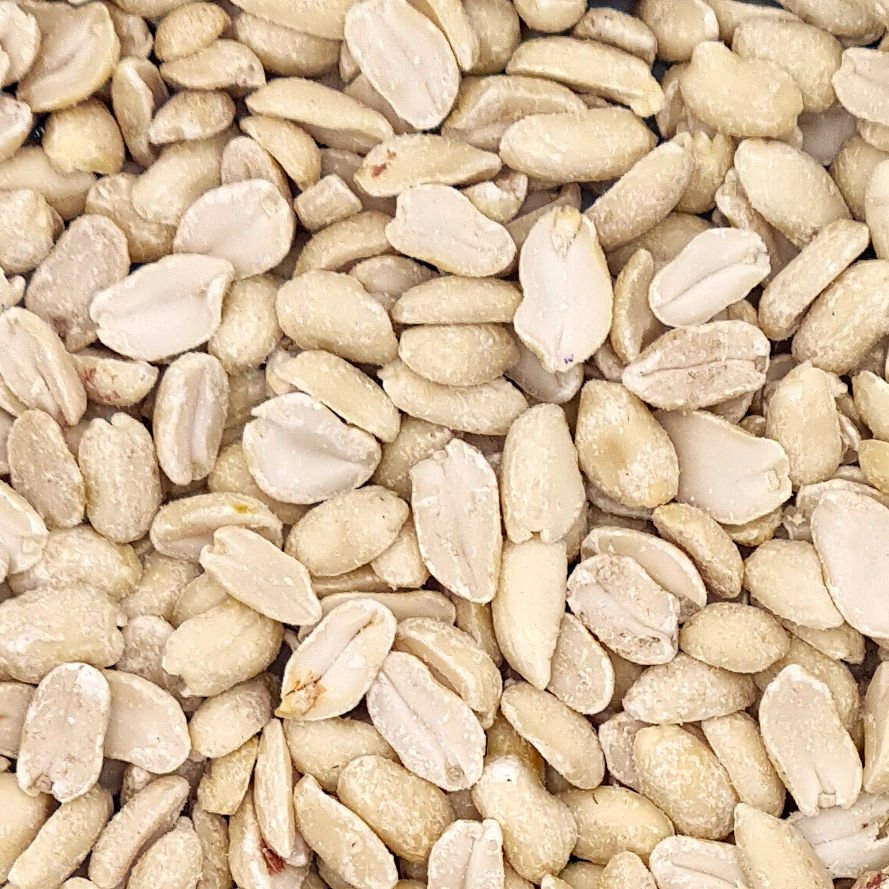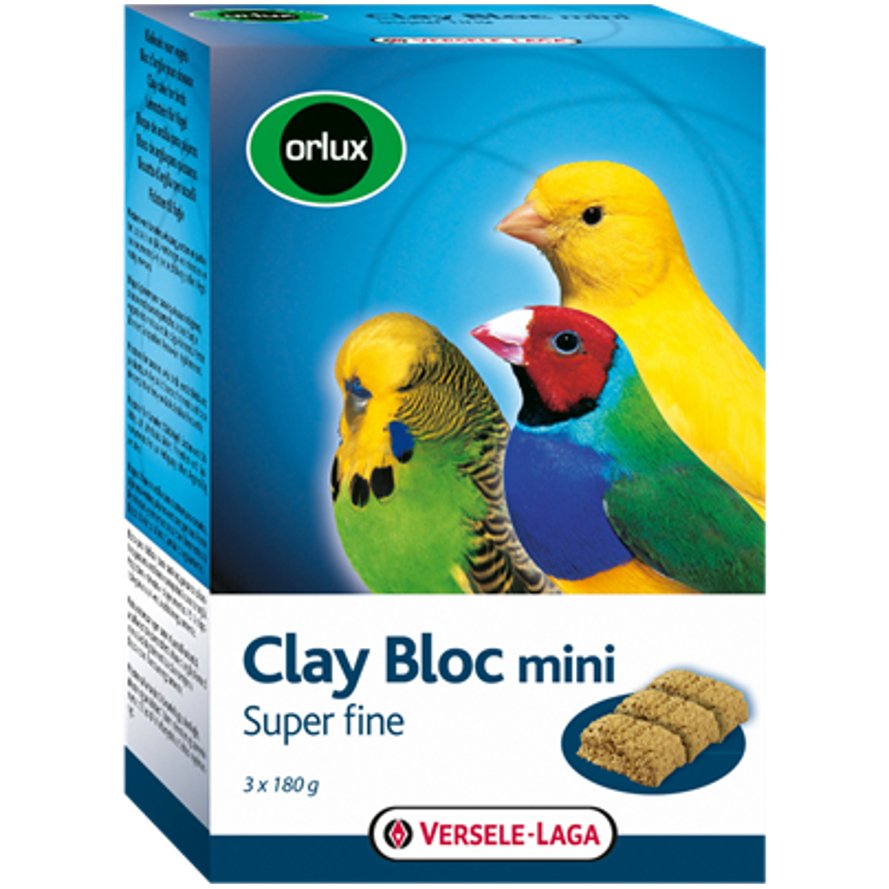
Best food for large parakeets
Welcome to the store for healthy large parakeet food. Discover our wide selection of healthy parakeet food and support a species-appropriate diet for your parakeets. Buy healthy parakeet food to ensure a long and active life of your feathered friends!- s mall seeds for smaller parakeets
- low in fructose
Content: 0.5 kg (€9.00* / 1 kg )
- balanced ratio between fruit and vegetables
- satiating
Content: 0.5 kg (€9.00* / 1 kg )
- Fruit & rice for large parakeets & parrots
- filling
Content: 0.5 kg (€9.00* / 1 kg )
- Cooked food with vegetables based on wheat & rice
- for large parakeets & parrots
- satiating
Content: 0.5 kg (€9.00* / 1 kg )
- With 9 different flowers from natural medicine
- Flowers can also be used for tea
Content: 0.1 kg (€45.00* / 1 kg )
- ready-to-use sprouted food for large parakeets & agapornids
- important nutrients, minerals and vitamins
Content: 0.21 Liter (€21.86* / 1 Liter )
- high proportion of berries and flowers
- staple food for large parakeets
- Complete feed with oyster shell grit
- High energy content for outdoor aviary and in case of illness
- improved recipe of grass and flower supplement
- 5 varieties of grass seed and 4 varieties of flowers
Content: 0.5 kg (€19.00* / 1 kg )
- 6 different grass seed varieties with fine herbs
- millet and grain-free
Content: 0.5 kg (€19.00* / 1 kg )
- Improved recipe of the Health Extra
- High-quality herbal seeds known from herbal medicine
Content: 0.5 kg (€20.00* / 1 kg )
- high proportion of seeds containing flour
- basis for own feed mixtures
- high proportion of vegetables and herbs
- staple food for large parakeets kept indoors
- as a food supplement or tea
- suitable for all parakeets and parrots
Content: 0.5 kg (€22.00* / 1 kg )
- as an extra portion of vitamins, for feeding or as a treat
- made from 100% natural fruit, berries and vegetables
Content: 0.5 kg (€22.00* / 1 kg )
Darüber freut sich dein Liebling...
Who all belongs to the species of large parakeets?
- As already mentioned, the most parakeets are found in Australia: Ring-necked parakeets, mountain parakeets, king parakeets, red-winged parakeets, glossy parakeets, horned parakeets, red-crowned parakeets, beauty parakeets, Bourke's parakeets, jewel parakeets, shield and barred banded parakeets, Barnard's parakeets, Rosella parakeets (Prachtrosella), collar parakeets, yellow-bellied parakeets and Pennant parakeets.
- Africa is home to: plum-headed parakeets and collared parakeets
- In New Zealand there are the species: goat parakeets and jumping parakeets
- At home in South America are: Monk parakeets, sun parakeets, red-bellied parakeets, brown-eared parakeets, aymara parakeets, gold parakeets and molinas parakeets.
- Based in Asia are: Alexander parakeets and China parakeets

